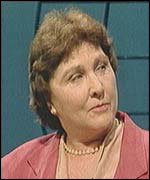|
Moral Panic - Child
Sexual Abuse |
|
|
Dr Harkin, a member of the Eastern
Regional Health Authority (ERHA), obtained this information in reply to a
question he put down to the then acting chief executive officer, Liam Woods. In a reply admirable in its
candour, Woods said special consideration is given to "children aged
five and under, or when the alleged assault has taken place in the last 72
hours or when children who present are extremely distressed. These cases are
placed on a priority waiting list which, due to the number of referrals to
the unit that meet these criteria, is approximately three to four months".
After assessment, children can wait as long as five months for therapy, he
said. These waiting times are
unacceptable, he added, and he announced a review of the situation at St
Louise's unit at the hospital. Social workers say that if a child
needs to be taken into care, perhaps because the alleged abuser is living in
the house and cannot be persuaded to move out, it can be difficult to get a
care order from a court without an assessment from the child-abuse unit.
Conversely, if the alleged abuser moves out or is forced out by a barring
order obtained by a spouse, then that person, if innocent, experiences the
injustice of spending many months outside the home and under suspicion until
the assessment is done. Dr Harkin's question had been
prompted by a fellow GP who had come to him because he knew he was on the
board of the ERHA. "A patient had presented with a nine-year-old
daughter who had allegedly been raped some months previously. The child was
not sleeping and was unwell in many ways. They were still waiting for her to
be seen at St Louise's." He was surprised. Three years
earlier he had made representations on behalf of another colleague whose
patient was a child who had allegedly been sexually assaulted by another
child. At that time it was taking two to three months to be seen. He assumed
it was a temporary hitch in the service that had long since been rectified. At first he could not believe the
situation was worse now than it was then. "I phoned Dr Harkin believes the long
waiting list for sexually abused children is disgraceful. "I am ashamed
to be part of this situation," he says. "The sad thing is it's not
unbelievable," says Eileen Prendiville, national clinical director of
Children at Risk in Ireland (CARI). If the number of children who need
assessment is causing delay, then it follows that the assessment service is
being under-resourced, she says. CARI provides a support service for the
families of abused children. It also provides therapy for children after they
have been assessed. It trains health-board and other professionals in aspects
of dealing with child abuse. The situation, she says, varies
around the country, and in some health-board areas children can be seen
quickly or immediately if necessary. In "A lot of parents end up sort
of ignoring it. They are in crisis, trying to negotiate with the
professionals, trying not to appear upset." But, she says, the child's hurt
cannot be ignored while waiting for assessment. "If you had a child who
fell down the stairs and broke his leg, you wouldn't walk into the room next
time and ignore it." CARI, which has seven centres
around the country, can advise parents on how to comfort the child without
asking leading questions or otherwise endangering the assessment. Prendiville was not surprised that
Dr Harkin could find nobody to do a private assessment on behalf of his
colleague. Since Dr Moira Woods was found guilty of professional misconduct
in January last year, following a complaint to the Medical Council in
relation to her management at the Rotunda Hospital of alleged cases of child
sexual abuse in five families in the 1980s, doctors have become very cautious
about making definite diagnoses, she says. "The preschoolers are the ones
where the professionals are more wary. If it's intra-familial abuse of a
preschooler, you know your assessment has to stand up in court. You know your
professional reputation and your licence to practice is on the line. It's a
lot easier if the child goes away and disappears into the woodwork." Dr Woods, now retired, agrees that
doctors are cautious about becoming involved in the work. "There is no
'proof' other than forensic examination - either the presence of semen (in an
acute rape situation, which is a rare presentation in child abuse) or
pregnancy," she told The Irish Times. "This has meant that many doctors
are afraid of expressing opinions and has inhibited investigation in some
cases." She contrasts the situation in The service in CARI's helpline is at 1890-924567.
More information available from the organisation's website, www.cari.ie |

